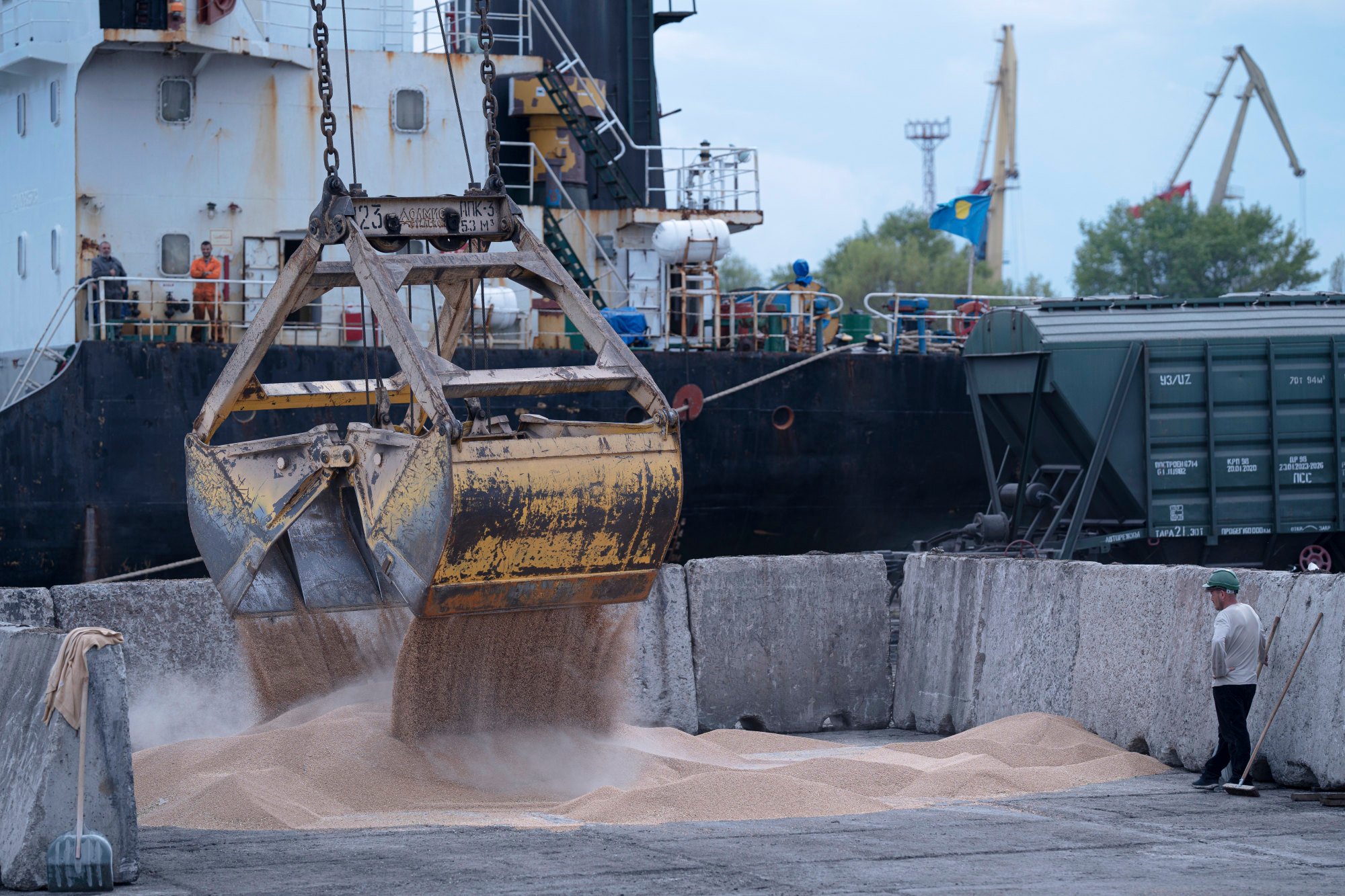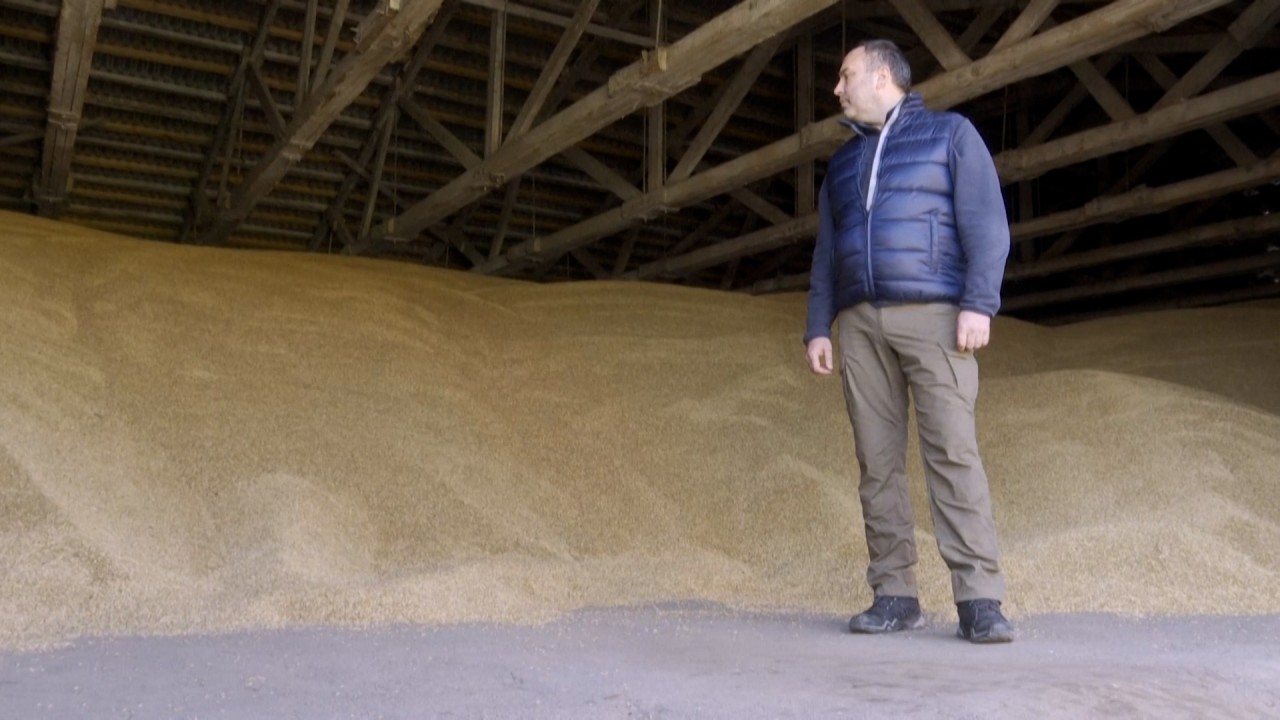
Asia’s grain supply in flux as Russia-Ukraine Black Sea deal lapses: ‘very complicated, expensive’
- The uncertainty comes as El Nino threatens Asia’s grain output, with heavy rains ravaging crops in China and Indian wheat prices at six-month highs
- Closure of the Black Sea route means Ukraine has to export via ‘very expensive’ rail and the Danube River that cannot accommodate large vessels
Asia braces for more rice-price shocks as India’s export ban unnerves markets
“Russia’s closure of the grain corridor via Odesa has led to very complicated and expensive logistics,” said Viacheslav Chuk, commercial director of Astarta, one of Ukraine’s largest agricultural firms. “Very little of Ukraine’s agricultural commodities will [now] go to destinations in Asia.”
In July, Ukraine exported 1 million tonnes of grain to Europe over land by train, another million tonnes by trucks and 2 million tonnes by the Danube river, Chuk said. “These are very expensive routes and farmers always have to pay extra,” he added.
After the pact ended in July, Ukraine exported 1.1 million tonnes of corn, out of which China took 10 per cent. It also exported 800,000 tonnes of wheat with none going to China, Chuk said, citing Ukrainian customs data.
“This is because we [Ukraine] don’t have the possibility of loading big vessels to China or other Asian countries, having only the Danube river route and Polish seaports which cannot serve Panamax-sized vessels,” he said.
Such ships can easily dock at Ukraine’s Odesa because it is a deep water port.
We need big vessels to reach our traditional markets in Asia, and this requires Russia to unblock the grain corridor via Odesa
“We need big vessels to reach our traditional markets in Asia, and this requires Russia to unblock the grain corridor via Odesa,” Chuk said, explaining that it was not economical to send smaller vessels.
Ukraine was loading up to seven Panamax vessels with up to 70,000 tonnes daily when the Black Sea route was open. It exported 2 million tonnes of wheat in October last year, out of which 40 per cent went to Indonesia, Vietnam, Tunisia and Egypt.
Other Asian nations like South Korea, Bangladesh and Lebanon were also importing from Ukraine through the route, according to Ukrainian customs department statistics.

An early resumption of the trade route appears unlikely, though Turkish President Recep Tayyip Erdogan has said he aims to revive and expand the scope of the deal, calling on Western countries to help turn the initiative into a basis for peace.
The two warring sides have escalated attacks on each other in the Black Sea region since the deal ended.

The escalation of the conflict to the Black Sea region is bad news for the world’s food supplies, as it could also affects shipments from Russia even as its ports overflow with grains after a record harvest.
The blockade of the Black Sea also has longer-term implications because it will make Ukrainian farmers think twice about planting grains that can no longer be exported.
“The action will make it more expensive for Ukraine to ship grain, which will mean lower prices for Ukraine producers. This is likely to result in further disincentives for planting grain this autumn and next spring,” said Joe Glauber, a senior research fellow at the International Food Policy Research Institute.
Russia may let Black Sea deal expire. Is a spike in global food prices looming?
Ukrainian farmers are also now considering growing crops that can be stored more easily than highly perishable corn and wheat.
“If the corridor remains closed to Black Sea exports, we [Ukrainian farmers] will go into lower [yield] per hectare crops. So, we will switch from corn and winter crops into oilseeds, sugar beets and niche products,” Chuk said.
Meanwhile, Russian occupation of Ukrainian territory and exchanges of fire have significantly reduced Ukraine’s agricultural production.

“Ukraine’s grain production has been significantly limited by the war, reducing its exportable surplus of grains,” said Paul Hughes, chief agricultural economist & director of research at S&P Global Commodity Insights.
Ukrainian exports through the Danube River remain feasible as long as there is no military destruction, he said. “However, Russia has targeted the Danube River terminals in Izmail and Reni in recent weeks.”
“If this mode of export is severely limited, it will have an impact on the availability of grains globally, and world wheat, corn and barley prices are likely to rise,” Hughes said.


